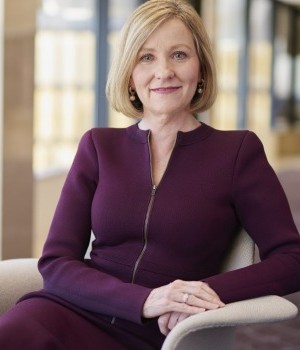Australia’s brightest entrepreneurs are being given a helping hand to solve some of the most common health problems with support from not-for-profit health fund, HCF, and its Catalyst accelerator program.
The launch of the fourth HCF Catalyst program, in partnership with Slingshot, is a reminder that the vision and ingenuity of home-grown startup businesses can improve the Australian health system and individual health outcomes.
The 12-week program, in partnership with Slingshot, is now in its fourth year and offers participants access to HCF mentors and hands-on resources such as funding, industry relationship-building, and strategic guidance to turn their ideas into investment-ready businesses.
HCF Catalyst is now accepting applications from health tech entrepreneurs, experts and other specialists interested in building a health technology business.
Since sponsoring HCF Catalyst four years ago, Sheena Jack has been a leader in the health tech revolution in her role as Chief Executive Officer, and previously as Chief Strategy Officer.
“Our vision for the Catalyst program has always been to support innovation in health care so we can drive better health outcomes for Australians. By continuing to support the latest technologies and innovative business models we can generate real life solutions for health issues that affect the wellbeing of our members,” said Ms Jack.
What has HCF done for health tech startups so far?
In 2018, Tamworth-based startup and Catalyst alumnus BirthBeat secured a partnership with HCF to bring its online antenatal education classes to market to provide accessible education for rural and busy families.
“HCF Catalyst has given BirthBeat exposure and opportunities that I would not have had otherwise. The partnership with HCF has taken the business to a new level,” said founder and registered midwife Edwina Sharrock.
In its first three years, HCF Catalyst has already fostered the success of multiple health technology businesses, with 18 startup graduates from the program securing $9.5 million in funding so far, from HCF and other investors.
The program has also supported 11 scaleups on the journey to becoming sustainable businesses.
“We’re pleased that the majority of our graduates have been funded or are growing to a stage where they can trial their offerings with our members. We have started working with HCF Catalyst alumni to integrate their health tech solutions into our products. The program’s graduates have demonstrated that they can help us provide more value to our members,” said Ms Jack.
An HCF staff pilot has been planned with Catalyst graduate Soldier.ly, a smart device buddy system for at-risk veterans, demonstrating the value of the corporate- led accelerator as a launchpad for entrepreneurs.
Chris Rhyss Edwards, Chief Executive Officer of Soldier.ly, says the Catalyst program transformed his business idea from a self-reporting app to a smart device app that detects signs of stress before the user is aware of them.
“I’m grateful to have had the opportunity to participate in a program that provides mentoring, strategic guidance and infrastructure support to Australian entrepreneurs, like myself, who are looking to transform health care space. It was through the support from the HCF Catalyst program that I was able to turn my business idea into the Soldier.ly app,” said Mr Edwards.
“We are thrilled to launch the fourth year of Catalyst in partnership with HCF,” added Chief Program Director of Slingshot, Ben Hutt.
“Health tech startups are different as their purpose ultimately improves the lives of patients across Australia. As we enter our fourth year of health tech accelerators with HCF, we’ve enjoyed working with them to create a long term strategy for innovation delivering a world class supply of new technologies and services that will improve the quality, accessibility and effectiveness of health and medical solutions,” said Mr Hutt.
As part of HCF’s long term goals, the aim of the HCF Catalyst program is to harness new technology and business models that have the power to improve the health outcomes of all Australians. This year’s program hopes to attract applications that relate to the latest health tech trends and address specific areas that will make health care understandable, affordable, high quality and member centric.
Startups, scaleups and entrepreneurs can apply for HCF Catalyst via the website here. Applications for HCF Catalyst are open from 23 October to 23 November 2018. Finalists will pitch their ideas to a leading panel of judges during the HCF Catalyst Pitch Days on 10-11 December 2018 in Sydney. The new cohort will be announced in early 2019.






![Five essential things to get right if you want to raise capital, with Bryan Vadas [FREE CHEAT SHEET]](https://anthillonline.com/wp-content/uploads/2015/08/vadas-3d-cover-01--300x194.png)
![Five ways to manage your time by managing yourself, with Helen Ebdon [CHEAT SHEET]](https://anthillonline.com/wp-content/uploads/2015/07/ebdon-3d-cover-01--100x75.png)
![Generating Web Traffic with Mark Middo and James Tuckerman [FREE REPORT]](https://anthillonline.com/wp-content/uploads/2015/08/Capture3-100x75.jpg)
![How to expand into New Markets with Elsita Meyer-Brandt [CHEAT SHEET]](https://anthillonline.com/wp-content/uploads/2015/07/Screen-Shot-2015-11-26-at-15.52.30-100x75.png)
![Four Page Digital Marketing Strategy [FREE RESOURCE]](https://anthillonline.com/wp-content/uploads/2015/01/FOUR-PAGE-IMAGE-100x75.png)
![The Facebook Honey Trap with James Tuckerman [CHEAT SHEET]](https://anthillonline.com/wp-content/uploads/2015/11/Screen-Shot-2015-11-26-at-11.34.14-100x75.png)
![What would you do if money was no object? [VIDEO]](https://anthillonline.com/wp-content/uploads/2012/10/sharks-300x350.jpg)

![Why introverts rule the world; we just don’t plan on shouting about our victory [VIDEO]](https://anthillonline.com/wp-content/uploads/2014/08/introvert-300x350.jpg)
![Do you want to innovate more? Then you need to become a “now-ist” [VIDEO]](https://anthillonline.com/wp-content/uploads/2014/07/idea-bulb-300x300.jpeg)
![Wicked cool skateboarding cat the latest viral video helping grow a small business! [VIDEO]](https://anthillonline.com/wp-content/uploads/2014/01/Didga-300x350.jpg)
![How to confidently raise venture capital… with Jack Delosa [CHEAT SHEET]](https://anthillonline.com/wp-content/uploads/2016/04/jack-de-losa-confidently-raising-venture-NFSU-rebrand-01.pdf-Box-2016-04-19-12-37-42-300x194.png)
![How Master the Art of Sales Even if it Makes You Feel All Weird and Icky Inside with Phil Anderson [CHEAT SHEET]](https://anthillonline.com/wp-content/uploads/2015/08/PHIL-ANDERSON-COVER-100x75.png)
![Three easy wins when using LinkedIn with David Hobson [FREE REPORT]](https://anthillonline.com/wp-content/uploads/2015/08/3quick-wins-100x75.png)
![Five essential ingredients for a humming homepage with James Tuckerman [FREE REPORT]](https://anthillonline.com/wp-content/uploads/2015/07/homepage-checklist-1680-01-copy-100x75.png)
![Instagram for Business… in 12 steps [FREE INFOGRAPHIC]](https://anthillonline.com/wp-content/uploads/2015/08/Capture7-100x75.jpg)
![New Zealand’s Xero eyes US IPO, further disruption as subscribers increase [INFOGRAPHIC]](https://anthillonline.com/wp-content/uploads/2014/07/sruuuuujana-212x194.png)
![Ever wonder if your ‘content marketing’ is really just crap? You gotta see this! [INFOGRAPHIC]](https://anthillonline.com/wp-content/uploads/2014/08/content-100x75.jpg)
![7 Business Lessons From Game of Thrones [INFOGRAPHIC]](https://anthillonline.com/wp-content/uploads/2014/10/infographic-games-of-thrones-041-100x75.jpg)
![How to build your own Media Empire… In seven steps with Nathan Chan [INFOGRAPHIC]](https://anthillonline.com/wp-content/uploads/2014/10/Nathan-Chan-Infographic-e1413419529176-100x75.jpg)
![5 Business Lessons From Tinder [INFOGRAPHIC]](https://anthillonline.com/wp-content/uploads/2014/10/Tinder-Elegant-Infographic-100x75.jpg)



